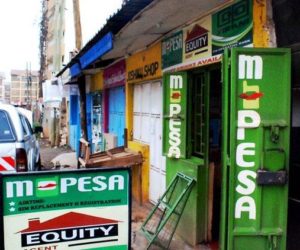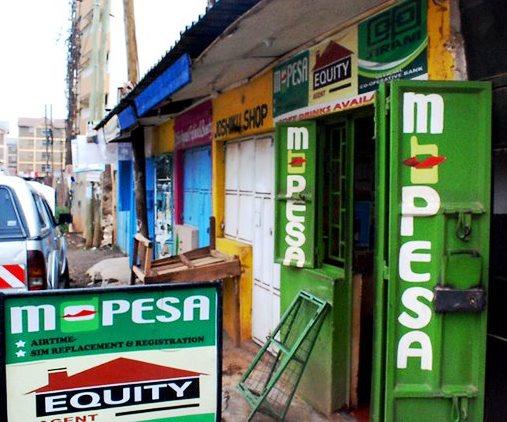|
Getting your Trinity Audio player ready...
|
By Lilian Museka
Nairobi, Kenya: Mobile money agents play a very critical role in enabling financial access in emerging and developing markets. They are a trusted and recognized financial access point by many customers.
Despite the current Covid 19 pandemic, a report by the Kenya National Bureau of Statistics shows that mobile money transactions in the first six months of 2020 increased to 2.144 trillion from KSh 2.136 trillion recorded in the same period in 2019.
This implies that in every locality, there are mobile money agents enabling people to get a service they would have had to go to the bank, which is not always closer to home, “says Andrew Mutua, the Chief Executive Officer at PesaKit.
Despite this great contribution, Mutua notes that mobile money agents, who are the backbone of the mobile industry face inherent liquidity management challenges in their day-to-day operation and therefore PesaKit offers them working capital in the form of e-float loans, through regulated Microfinance Institutions (MFIs).
PesaKit was created to empower mobile money agents to become the source of affordable and convenient digital and financial services. It is a free business app in Kenya that allows users to become the go-to shop for affordable financial and digital services in their community.
“The inability of mobile money agents to predict and respond to fluctuations in the demand for liquidity is a big challenge to their mobile money service business. They often end up lacking float (liquidity) and consequently turning away customers. Sometimes, they are forced to close their businesses when they have to devote time to rebalance.
They are also weary of their security when they travel to and from the rebalancing points. We, therefore, aim to build a network of mobile money agents in Africa who can serve as a distribution channel for a variety of digital financial services so that underserved populations across the continent have better access to the services they need.
Explaining how it works, Mutua says after downloading the app from Google Play Store, the user has to register their account on the app for free and deposit money into the PesaKit wallet to begin transacting on the platform!
The app transforms mobile money agents into digital merchants, enabling them to earn additional income in the form of commissions from the sale of digital goods such as airtime, electricity tokens, and Fiber bundles and also sell microinsurance.

But why Pesakit? Mutua explains that “As a diligent M-Pesa user, I experienced first-hand frustrations of being unable to withdraw money due to my agent’s lack of float. There have been many instances where I was left in the lurch, unable to complete transactions, sometimes during emergencies. After one such incident, I decided to come up with a solution.
Since the launch in 2018, the platform has empowered over 2,500 agents to make smart decisions on their day-to-day operations, something Mutua says has elevated them in a 20% increase in profits and productivity.
“Bringing financial and digital inclusion to the last mile is imperative for a flourishing global economy. Financial institutions have been doing their part to make this a reality but they have struggled to build a reliable agent network and it is expensive to manage and supervise such an extensive network. Here I found another opportunity to expand my original idea to leverage the mobile money agent network as a channel to provide these individuals with better access to digital financial services,” he adds.
According to the Central Bank of Kenya, mobile money transactions stood at Sh3.98 trillion (US$38.5 billion) as at 2018 translating to an average value of Sh10.92 (US$108 million) billion mobile cash transactions per day. The value of mobile money transactions in 2018 was equivalent to 44% of the GDP.
Noting that mobile money transfers have made a huge contribution to the economy; Mutua says the transformation of the landscape of financial inclusion in emerging markets is part of their duty. “In Kenya, where mobile money transaction volume constitutes nearly 50% of GDP, there are 231,292 mobile money agents (Jan 2020, Central Bank of Kenya), and a population of 53.4 million. There is a mobile money agent for approximately every 231 people. These agents are able to reach large volumes of the population via a real human touchpoint, at a scale no other organizations can compete with,” he adds.

He adds that access to mobile money has reduced poverty in Kenya, particularly among female-headed households. The rapid expansion of the mobile money industry has also successfully lifted many households out of extreme poverty as it allows its customers access to safe and reliable banking at a low cost.
Mutua is optimistic that Pesakit will empower mobile money agents to serve more customers via existing mobile money products as well as new products.
“For every 100,000 people in Kenya, there are 9.2 ATMs, five bank branches, and over 535 mobile money agents. The mobile money agent network is able to reach underserved populations across East Africa in person and can be leveraged as a channel to provide these individuals with better access to digital financial services.
PesaKit has since launched the second iteration of the PesaKit app which will help over 200,000 mobile money agents in Kenya access digital financial services and unlock access for millions of customers that are currently underserved.
However, just like all other growing startups, PesaKit has equally faced challenges with the current pandemic being the biggest hurdle causing their services to slow down.
“COVID-19 has shifted how businesses think and operate. Our customers have since incurred over a 50% loss of revenue during the three months of lockdown and curfew. We stepped up our efforts to help our customers protect themselves and navigate this difficult period in ways that secured their income, boosted their financial resilience, and helped them sustain their businesses. Our responses included a safety and anti-misinformation campaign, Covid 19 hospital insurance, and a floating exchange.”
PesaKit also faced another challenge when they wanted to build partnerships with Telecom companies. “We wanted to integrate their services with ours on our platform, but we ran into some serious red tape. The telecom companies in Kenya are vastly successful and I feel they were somewhat hesitant to collaborate with startups. This is unfair to startups in general, as such collaborations can go a long way in placing the company on the radar,” he adds
This he says has been the hardest task for most startups as they find it difficult to fundraising adding that a limited network of investors hampers their growth.
Mutua says PesaKit app is available to download in Kenya, with the majority of operations being out of Nairobi and currently beginning operations in Tanzania. PesaKit is currently in partnership with 14 companies across the telecom, utilities, and insurance industries.
In 2019 PesaKit was accepted into the Catalyst Fund, the Global inclusive accelerator that supports entrepreneurs who are building affordable, accessible, and appropriate solutions that improve the financial health of underserved communities in emerging markets.

“We received extensive venture building support, we were exposed to a vast network of more startups and we received our first grant of $100,000 that has gone a long way in building our tech infrastructure. We also received support from DFS labs, investors of Digital Commerce in Africa.
This year, they were inducted into the global initiative, Inclusive Fintech 50’s 2020 cohort where they received a Financial Resiliency cash prize of USD 25,000 for efforts towards revolutionizing last-mile financial and digital inclusion through mobile money agents.
PesaKit was selected from more than 400 innovative startups from across the world, that provides low-income households and businesses with financial tools that can help them support their livelihoods and build financial resilience. The Inclusive Fintech 50 initiative selects startups that excel on four fronts: inclusiveness, innovation, scale potential, and traction.
Mutua started coding when in high school and fell in love with the ability to solve problems using the software. He later got a diploma in Graphic Design, Illustrations, and 2D Animations and pursued a Microprocessor Technology and Instrumentation course at the University, combining it with Computer Science and Electrical Engineering.
Before PesaKit, Mutua worked at BusinessIT Africa as Head of Digital and other international projects offering advice to corporates, startups, and NGO’s around their technology infrastructure in East & Central Africa.
He then decided to start his first enterprise and founded Logic, an award-winning software engineering and digital design consultancy firm based in Nairobi. “Our niche focus was on financial services and we led digital transformations, integrations, middleware and platforms engineering for banks and insurance companies in Kenya.
Asked about the future plans for PesaKit, Mutua says is to become a world leader in providing inclusive, interoperable, and last-mile, digital and financial transactions processing by 2023. “We aim to become a super-platform for mobile money agents across emerging markets in the African continent, enabling them to become a last-mile distribution channel for digital and financial services, helping them and their communities to grow and prosper and aim to serve over two million money agents within the next 12 months through our platform.














